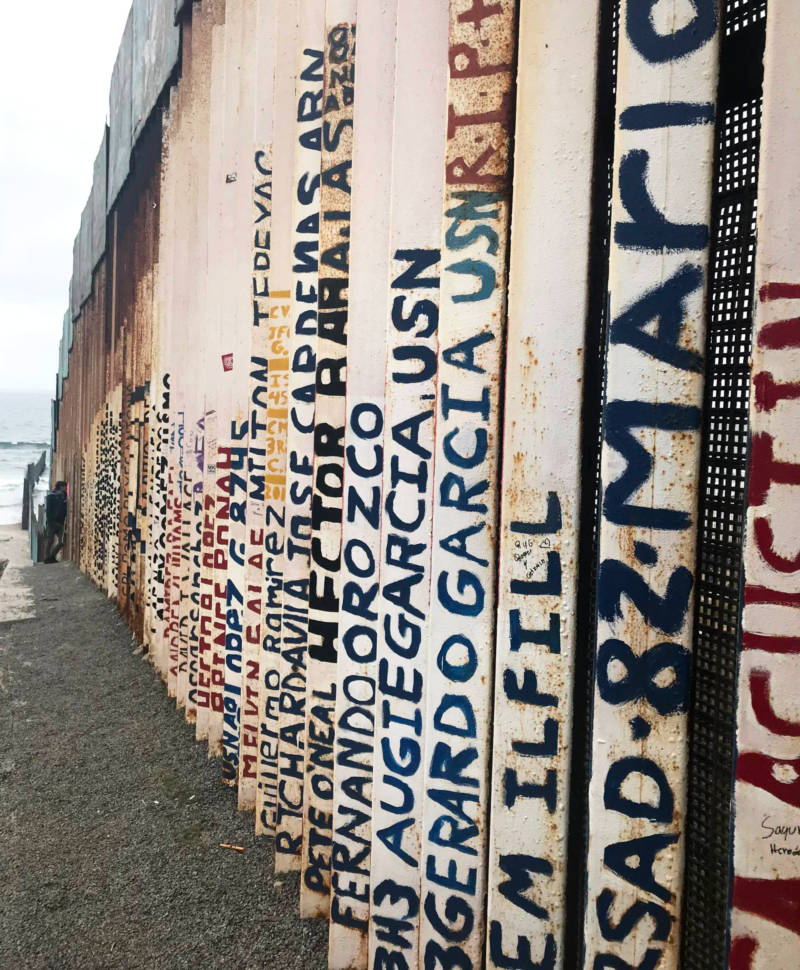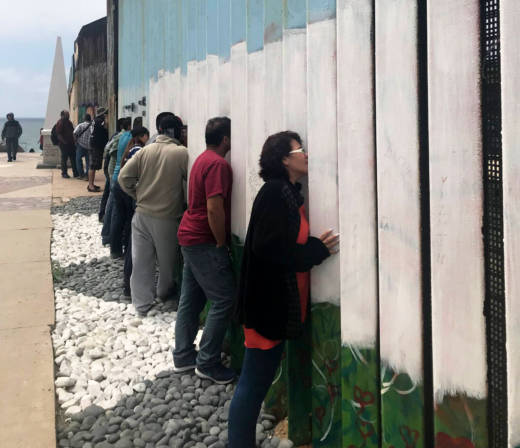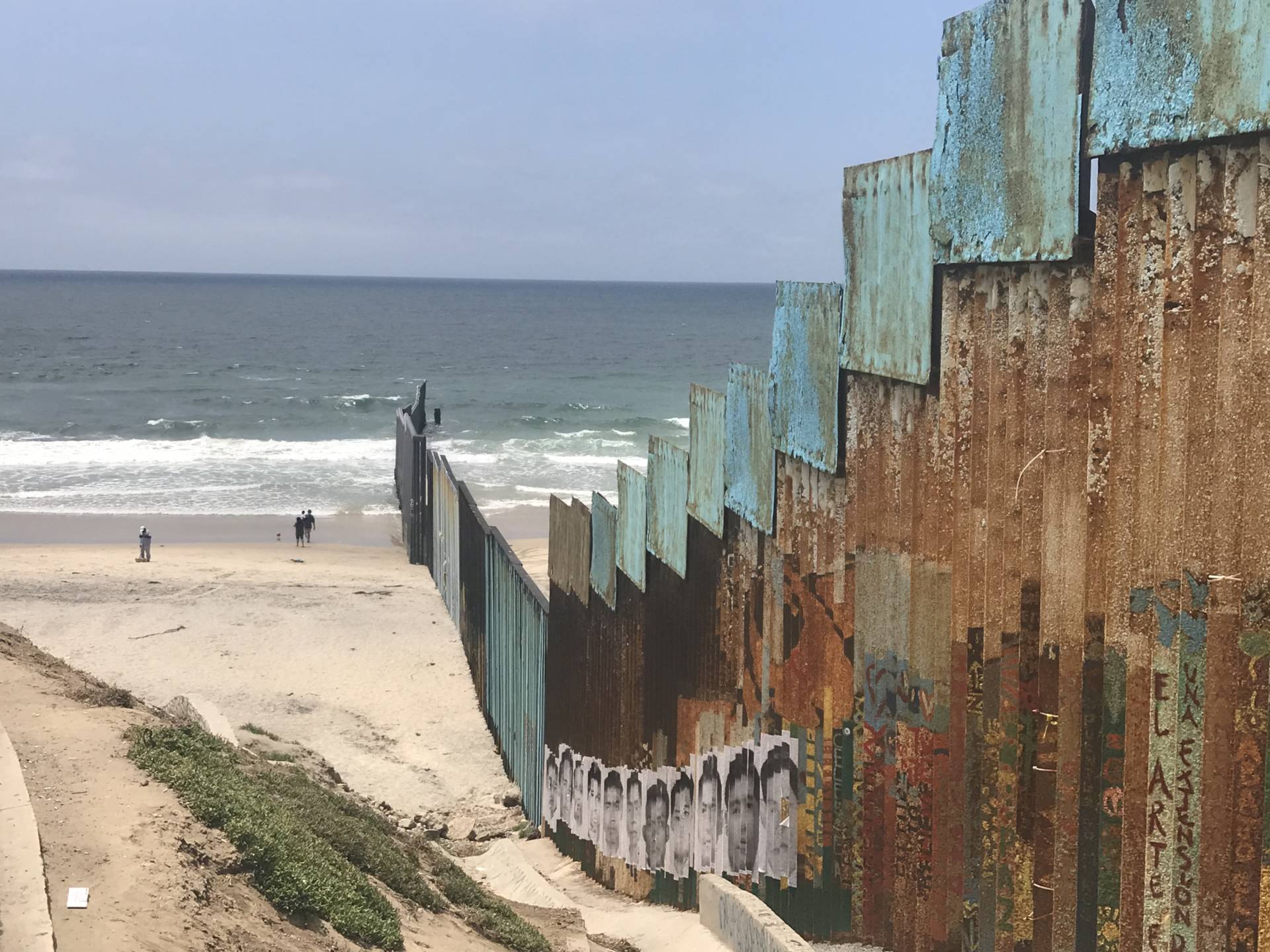On Monday, Attorney General Jeff Sessions visited the border to announce a new “zero tolerance policy” on illegal border crossings — even if young children are involved.
“If you cross the border unlawfully, then we will prosecute you — it’s that simple,” Sessions said. “If you smuggle illegal aliens across our border, we will prosecute you. If you are smuggling a child, we will prosecute you. And that child will be separated from you, as required by law.”
Most families crossing the border come from three Central American countries — Guatemala, Honduras and El Salvador — where gang violence is rampant and children are often threatened.
As Sessions made his proclamation on the U.S. side of the border, anxious protesters stood on the Tijuana side of Friendship Park, waiting to hear how the decision might change their futures.

Maria Galleta is an activist working at Madres Deportadas, a group that — among other things — helps deported families adjust to their new lives in Mexico. She says many of the deported children “don’t speak Spanish,” so they have difficulty adjusting to their new lives.


